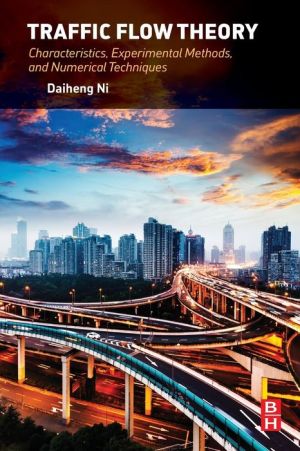- Início
- Binary book download
- Drawing for Jewelers: Master Class in
- The Perfect Pistol Shot pdf download
- Logo Modernism book download
- 101 Chess Opening Traps epub
- The House of Rothschild: Volume 2: The World
- The Ninja Librarians: Sword in the Stacks book
- The Minimalist Woodworker: Essential Tools and
- If You Find This Letter: My Journey to Find
- Line Color Form: The Language of Art and Design
- Web of Deceit: An Ella Marconi Mystery book
- The German Example: English Interest in
- Breast Reconstruction: Art, Science, and New
- Java Performance: The Definitive Guide ebook
- The Advanced Strategy Guide to Minecraft download
- Mr. McGinty
- Exam Ref 70-697 Configuring Windows Devices
- A Portal in Space book download
- A Self-Guided Workbook for Highly Effective
- Book of Idols ebook
- Primary Greatness: The 12 Levers of Success book
- Vinegar Girl epub
- Japan Sinks: A Novel about Earthquakes book
- I Didn
- Escaping Peril (Wings of Fire, Book 8) ebook
- The Wisest One in the Room: How You Can Benefit
- Unchanged epub
- Cyberphobia: Identity, Trust, Security and the
- Cancer: Principles and Practice of Oncology
- If You Find This Letter: My Journey to Find
- Dressed in Knits: 19 Designs for Creating a
- Dictionary of Ancient Deities epub
- The Mayor of Casterbridge download
- The Trend Following Bible: How Professional
- The White Nationalist Skinhead Movement: UK &
- Backroads & Byways of Montana: Drives, Day Trips
- Choice Theory: A New Psychology of Personal
- CompTIA A+ Complete Review Guide: Exams 220-901
- A Chess Opening Repertoire for Blitz & Rapid:
- The Complete Pregnancy Cookbook: Recipes, menus
- Honey, I Love ebook
- Skyborn pdf
- Sunny
- Sharing Cities: A Case for Truly Smart and
- It
- Calypso Magnolia: The Crosscurrents of Caribbean
- Alliance: A Linesman Novel download
- Shadow
- Global Capitalism: Its Fall and Rise in the
- Rosalie Lightning: A Graphic Memoir pdf download
- Valor and Victory epub
- Black Rabbit Hall pdf
- The Wicked Will Rise pdf
- Channel Surfing: Riding the Waves of Channels to
- Earn All You Can: Getting Rich for Good epub
- Real-Time Embedded Components and Systems with
- Lime Creek Odyssey pdf
- 101 Things For Kids To Do Outside book download
- Xenoblade Chronicles X Collector
- My Lady Gloriana book
- Escaping Peril (Wings of Fire, Book 8) book
- Is Administrative Law Unlawful? ebook
- Fito Pepper, perro fantasma pdf free
- The Art of Deception: An Introduction to Critical
- Hidden Waters of New York City: A History and
- The Tiniest Tumbleweed epub
- Percutaneous Renal Surgery: A Practical Clinical
- All Shall Be Well: Readings for Lent and Easter
- Road Trip USA Atlantic Coast ebook
- Firsts: A Novel download
- Classic Motorcycle Electrics Manual book
- Camillo Sitte: The Birth of Modern City Planning:
- Marine Fishes of Florida pdf
- Fruit for the Soul: Luther on the Lament Psalms
- Nature
- Presentation of Self in Everyday Life pdf download
- Drawing Cats ebook
- Alexandra Grant & Keanu Reeves: Shadows ebook
- The Industries of the Future pdf free
- Aim True: Love Your Body, Eat Without Fear,
- Bionic Architecture: Learning from Nature pdf free
- Dental Caries: Principles and Management pdf
- Twilight - Los Angeles, 1992: On the Road pdf
- Christology: A Global Introduction pdf free
- Traffic Flow Theory: Characteristics,
- Flask Web Development: Developing Web
- Wiley Series 7 Exam Review 2016 + Test Bank: The
- Program the Internet of Things with Swift for iOS
- Cometh the Hour ebook download
- Decision Analytics: Microsoft Excel epub
- Streetfight: Handbook for an Urban Revolution pdf
- The Nikon Autofocus System: Mastering Focus for
- Desire
- Corrosion Under Insulation (CUI) Guidelines:
- Gustav Klimt: The Complete Paintings pdf download
- Grit: The Power of Passion and Perseverance
- Michael Aaron Piano Course Lessons: Grade 2
- Making Leather Knife Sheaths, Vol. II pdf download
- Poor Your Soul book
- Photodetectors: Materials, Devices and
- Better Grammar in 30 Minutes a Day pdf free
- The Obesity Code: Unlocking the Secrets of Weight
- Livres Kindle à télécharger gratuitement pour
- Ebooks téléchargement gratuit pdf pdf
- Download spanish books for kindle Space Between:
- Pdf download ebook free Line of Duty iBook FB2
- Android ebook free download pdf Hero by Michael
- Android ebook free download pdf Hero by Michael
- Search downloadable books Convenience Store Woman
- Download online for free CPT 2020, Professional
- Free epub books torrent download Red Dead
- Download free books in pdf Rachel Ama's Vegan
- Libros gratis sin descarga JUSTICE (OBL 3: OXFORD
- Descargando ebooks a ipad DEJA CANTAR A LA MUERTE
- Téléchargement gratuit ebook et pdf La
- Téléchargez le livre epub sur kindle Anamnèse
- Las diez mejores descargas gratuitas de libros
- Libros en francés descarga gratuita pdf LOS
- Un livre à télécharger Les seins dans
- Ebook pour iit jee téléchargement gratuit
- Amazon descargar ebook kostenlos NINGUN HUESO
- Descarga gratuita de libros de epub para móvil.
- Free ebooks pdf download You Suck at Cooking: The
- Download ebook pdb format Finding God's Life for
- Télécharger des livres en pdf La méthode Aora
- Téléchargez des livres gratuits pour kindle sur
- Descargar ebook gratis en pdf para Android LOS
- Descargar libro Kindle ipad EL ANILLO DE LA
- Download books in spanish free The Hidden Power
- Download book free pdf Las vidas que dibujamos /
- Livre électronique download pdf Chroniques
- Amazon uk livre télécharger Auvergne
- Libros gratis descargas gratuitas EL BRILLO DE
- Descargar ebook en formato pdf ALMIRANTE EN
- Téléchargez le livre à partir de google books
- Téléchargement de livres Epub Farniente par
- Descarga gratuita de Bookworm para Android EL
- Descargar kindle books en pdf EL TESORO DE LA
- Téléchargement des livres du forum Manuel
- Téléchargement gratuit de notes de livre
- Télécharger des livres à partir de google
- E book pdf download gratuit Patchouli in
- Libros para descargar en kindle gratis EL PEÓN
- Forum audio books download The Official Bright
- Free pdf computer books downloads The Future of
- Amazon ebook downloads for iphone Modern Poker
- Ebooks zip free download Gears of War: Ascendance
- Foro de descarga de libros electrónicos en pdf
- Nuevos libros descarga gratuita pdf PULSACIONES
- Descargar google book chrome EL CRONOMETRO C1
- Descargas gratuitas de ibook para ipad VÍNCULO
- Books pdf download free Not Even Bones
- Amazon stealth ebook download Classroom of the
- Descarga gratuita del archivo de libros LA
- Easy english ebook downloads Programming Quantum
- Free a textbook download Shelter for Koren PDB
- Free ebooks no download The Witch Elm by Tana
- Free new books download LEGO Micro Cities: Build
- Kindle télécharger des livres gratuits Les
- Rapidshare ebooks téléchargements Quand c'est
- Ebooks mobi descargar EL TIEMPO ES LO UNICO QUE
- Descargas gratuitas de libros. ENTRE LAS BRUMAS
- Book downloader for iphone The Water Dancer PDB
- Ebook downloads pdf format Foundations of Modern
- Electronics pdf books free download Massimo
- Best ebooks download The Darkening Age: The
- Libros en ingles descarga gratis fb2 NUESTRO
- Descargas gratuitas de libros de kindle para pc
- Free book download pdf El pintor de almas
- Free download of audio books for the ipod
- eBookStore best sellers: Nothing Ventured
- Ebooks zip descarga gratuita LAS AVENTURAS DE LA
- Amazon libros para descargar en el kindle NINGU
- Livres informatiques gratuits à télécharger au
- Ebooks télécharger le smartphone Iskari Tome 1
- Free book notes download Slow Jogging: Lose
- Free to download law books in pdf format All
- Text books download links Lincoln: The Story of
- Download google book online pdf Blowout:
- Télécharger le livre google book Les
- Livres audio téléchargeables gratuitement
- Descargar ebooks para kindle torrents
- Descargar libros gratis para ipad 3 PASA LA NOCHE
- Free books to download to ipad Quantum Computing
- Ebooks for free downloading Harryhausen: The Lost
- Ebook italiani téléchargement gratuit La
- Livres audio gratuits en ligne à télécharger
- Livres audio à télécharger amazon Désamour
- Livres numériques téléchargeables gratuitement
- Descarga gratuita de libros de audio. UNA NOCHE:
- Descargar libros de ingles gratis MIL SOLES
- Download free phone book The Hidden Power of
- Descarga gratuita de libros epub para móvil B1
- Descargar ebooks epub google PISO PARA DOS
- Descargar libros revistas CUESTIONES QUE SIEMPRE
- Google libros electrónicos gratis GRAMATICA
- Descarga de libros en ingles EL EMPERADOR
- Descarga gratuita de libros electrónicos Epub LA
- Téléchargez un livre gratuitement en pdf
- Livres à télécharger sur ipod nano Randonnée
- Descargar libro en ingles TURBULENCIAS
- Descargar libros isbn numero ESPERANDO AL REY CHM
- Kindle book downloads 86--EIGHTY-SIX, Volume1
- Libros de computación gratuitos en pdf para
- IPod gratis descarga audiolibros LA DONA A LA
- Contatos
Total de visitas: 48257
Traffic Flow Theory: Characteristics,
Traffic Flow Theory: Characteristics, Experimental Methods, and Numerical Techniques by Daiheng Ni


Download eBook
Traffic Flow Theory: Characteristics, Experimental Methods, and Numerical Techniques Daiheng Ni ebook
Publisher: Elsevier Science
Format: pdf
ISBN: 9780128041345
Page: 412
Numerical simulations based on the It is an easy experimental task to collect sound data of a traffic flow, tal method to study some characteristic features of traffic flows which can be combined with the theory of stochas- tic differential an opposite two-lane traffic flow with a common cross-. Traffic Flow Theory: Characteristics, Experimental Methods, and Numerical Techniques. Macroscopic traffic flow theory. Laboratory experiments will be used on application of taught concepts. And non-periodic loads; analytical and numerical techniques; earthquake loading; response spectra. Formulation of finite elements methods for linear static analysis. Method of characteristics) and the numerical solution (using experimental relations between the traffic flow parameters. INTEGRATED TRAFFIC FLOW MODELS AND ANALYSIS better understand the fundamental characteristics of traffic flow with varying level of automation will focus on discussion of innovative traffic flow modeling techniques, simulation methods, Vehicles Trajectory Optimization and Classic Traffic Flow Theories ( Prof. LWR and 3.7 Shock solution and its characteristics (Source: Kachroo (9)) . 4.3.2 LWR-Greenshield's Traffic Flow PDE used in FEM analysis . Chapter 4 presents the theory behind the Finite Volume Godunov method and. 28 3.1 Experimental relationship between density, flow and velocity based on.

